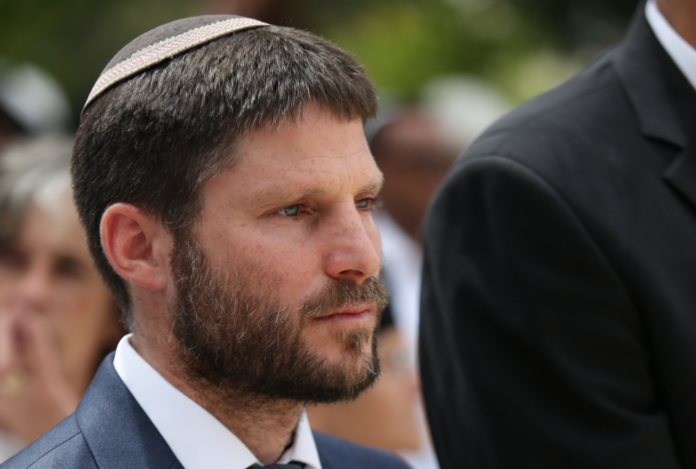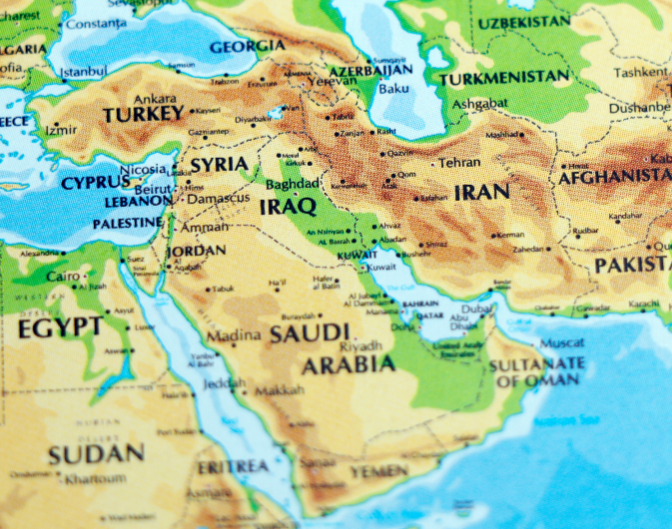
The far-right Israeli Finance Minister Bezalel Smotrich has outlined plans for a “Greater Israel,” claiming that Jerusalem will eventually extend to Damascus in Syria.
Smotrich, who is a hugely influential figure in Israel and is well known for his anti-Palestinian rhetoric, made the comments in a recent documentary.
He suggested that Israel’s future borders would extend beyond the Jordan River. “Little by little,” he responded when asked about possible expansion in the “In Israel: Ministers of Chaos” documentary.
The far-right minister also claimed that Jerusalem would eventually extend to Damascus in Syria, in line with the “Greater Israel” ideology based on religious interpretations of a “Promised Land” for the Jews.
The remarks follow previous controversial statements made by Smotrich, who has denied the existence of a Palestinian people and said a Palestinian city should be “wiped off the face of the earth.”
Smotrich’s statements have led to personal diplomatic isolation, with recent visits to the U.S. and France marked with his absence at official meetings.
In Paris, Smotrich’s use of a map of Israel that included Jordan further inflamed the debate. The event was moved because of public outcry, which Smotrich interpreted as “hatred of Israel is everywhere.”
Subscribe to our newsletter and stay updated on the latest news and updates from around the Muslim world!
The “Greater Israel” concept, rooted in religious texts, envisions Israeli expansion into Palestine, Syria, Jordan, Egypt, Iraq and Saudi Arabia, even though exact borders remain undefined.
This idea encompasses Biblical boundaries traditionally believed to have been promised to the Israelites in the Hebrew Bible.
Advocates for a Greater Israel generally believe that this land should be under Jewish sovereignty. This ideology often supports the settlement of Jews in these areas, arguing for historical, religious and security reasons.
The concept of Greater Israel directly conflicts with the idea of a two-state solution, where Israel and Palestine would coexist as separate, sovereign states. Instead, it suggests a one-state solution where the entire territory is under Israeli control, which raises significant issues regarding the rights and status of Palestinians living in these areas.
Not all who might be described as supporting a Greater Israel envision the same end state. Some might see it as a binational state, while others advocate for Jewish sovereignty with varying degrees of autonomy for non-Jewish populations.
The Greater Israel concept is not universally accepted within Israel or among Jewish communities worldwide but with extreme religious parties gaining huge leverage over the current Israeli regime they are gaining ground.
Bezalel Smotrich himself is a significant figure in Israeli politics, holding the position of Finance Minister and also having responsibilities within the Ministry of Defence, which effectively makes him influential over policies concerning the West Bank.
Smotrich advocates for policies that aim to enhance Jewish sovereignty over areas traditionally considered part of a future Palestinian state. His views on settling the West Bank more densely with Jewish populations, often referred to as part of the broader settlement movement, are seen by critics as an attempt to preempt any future Palestinian state by altering the demographic and geographic landscape.
Smotrich has also made comments that have been interpreted as denying the existence of a Palestinian people or questioning their right to statehood. For instance, he has suggested that there should be no independent Palestinian entity, particularly in Gaza, advocating for policies that might encourage or force Palestinians to leave, which has been widely criticised as advocating for ethnic cleansing.
His positions and statements have led to international condemnation. For example, suggesting that starvation could be a strategy in Gaza drew sharp rebukes from the United States and other nations, highlighting concerns over human rights violations.























